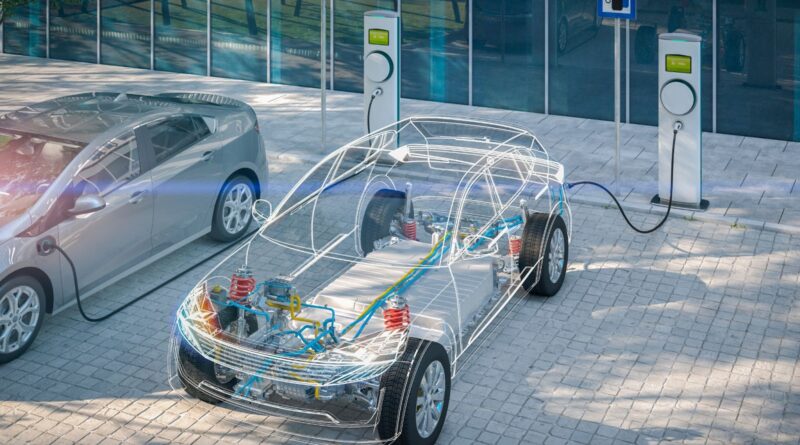Are electric cars successful in India?
In India, pollution levels have nearly reached hazardous levels. In the Climate Risk Index 2020, India is among the top five countries, suggesting that it is vulnerable to climate change.
As a result, it looks that adopting e-mobility is the only viable option. The Indian government has opted to promote the usage of electric vehicles (EVs) to reduce pollution in order to address environmental concerns. Due to a number of difficulties, new automobile purchasers will not acquire electric vehicles until 2030, according to Castrol’s research. Infrastructure is one of the most crucial components.
Despite the disadvantages of using and selling electric vehicles on Indian roads, the total number of electric vehicles on Indian roads is expected to reach almost 100 million by 2030, up from less than half a million in 2020.
What are Electric Vehicles or Cars?
Unlike traditional internal combustion engines, electric automobiles are propelled by several types of electric motors. Electric cars feature a battery pack that could be recharged with energy from a power source. The stored electric energy is subsequently used to drive the electric motor. There are many different sorts of electric vehicles, such as electric cars, trucks, buses, motorcycles, trains, scooters, and so on. However, producing and placing electric automobiles on the road is the goal to clean up the air from pollution while also conserving valuable petroleum.
Tesla, BMW, Nissan, Chevrolet, Ford, Volkswagen, and Kia are the top seven electric car manufacturers in the world.
Stocks of India’s Top Electric Vehicle Manufacturers:
As electric car in India grows at a rapid pace, automobile and motorcycle manufacturers are increasingly attracted to producing more electric cars.
- Mahindra Electric is a company that produces electric vehicles. Mahindra Electric is a pioneer in the electric vehicle sector. In 2001, they produced their first electric vehicle. Mahindra Electric’s popular EV versions include the Mahindra E20 and e-Verito.
- Tata Motors is a company that produces automobiles. Tata Motors is a well-known company in the Indian automotive sector for producing automobiles for personal use, public transportation, and other uses, but it is new to the EV category. Tata Motors’ popular EVs include the Tigor EV and Nexon EV. Tata, on the other hand, has concentrated on passenger vehicles and electric buses. The demand for automobiles in this sector is anticipated to reach 4 lakhs shortly.
- Hyundai-Hyundai has dominated the EV industry in India with the debut of the Kona EV. Hyundai Kona EV is said to cover 452 kilometers on a single charge. It addresses the question that all automobile enthusiasts in India have: “What is the mileage given?” However, the Korean carmaker is supposed to launch more EVs in the Indian market.
- Leyland, Ashok-Ashok Leyland has designed buses and trucks to meet the needs of Indian roads. They launched the iBUS and introduced battery swapping to India, as well as running cars including the Circuit, HYBUS, and Electric Euro 6 Truck.
Tesla’s future in India
According to Nitin Gadkari, Minister of Road Transport and Highways, Government of India, Tesla will debut its vehicles in India in the year 2021. By the end of 2022, the Indian government hopes to install 175 GW of renewable energy capacity.
This comprises ten gigawatts of bioenergy, one hundred gigawatts of solar power, five gigawatts of hydropower, and sixty gigawatts of wind power. India’s Prime Minister Narendra Modi said at the United Nations Climate Action Summit that the renewable energy target will be increased to 450 GW by 2030 from 175 GW by 2022.
With these considerations in mind, it’s obvious why the government is promoting electric cars, which use fewer non-renewable energy sources, rather than focusing on battery charge and emission-free transportation. So, in these circumstances, Tesla automobile advertising in India is a viable choice for Elon Musk’s American firm.
According to a report by NITI Aayog.
- By pursuing a shared, electrified, and connected mobility future, India can save 64 percent of expected passenger road-based mobility-related energy consumption and 37 percent of carbon emissions by 2030.
- It’d result in a 156 mega toe reduction in diesel and gasoline usage for the year. At a crude price of USD 52 per barrel, this would result in a net savings of over Rs 3.9 lakh crore (nearly $60 billion USD) by 2030.
- However, companies like Maruti Suzuki India, Hero Electric Vehicles, Mahindra, and Mahindra are already registered as electric vehicle producers in India. New collaborations like Suzuki and Toyota are preparing to introduce electric vehicles in the country.
- India is required to reduce its contribution to global emissions by 2030 as a member of the Paris Climate Agreement. As a result, the Indian government is taking important steps to promote EVs in India, such as launching the National E-Mobility Program and NITI Aayog issuing planning guidelines to encourage the usage of such cars.
- India is home to 13 of the world’s top 20 most polluted cities. One of the most significant sources of air pollution is vehicular pollution. India is among the countries with the highest levels of particulate matter (PM). Its cities have the greatest levels of PM10 and PM2.5 pollution; therefore, adopting electric automobiles would make it simpler to minimize pollution, making it a superior alternative.
Although the introduction of electric cars into the Indian market has been gradual, India offers significant potential for the development of electric vehicles that meet future demands. For a clean and green environment, the Indian government is completely committed to the adoption of electric vehicles. Carorbis is also known for having the greatest car accessories online on the internet.



